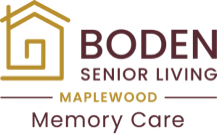Key Takeaways
- Ask how communities create and update personalized care plans to reflect evolving needs.
- Learn about the initial assessment process and which team members are involved.
- Explore safety measures, including secure entrances, monitoring systems, and emergency protocols.
- Review the types of daily activities and programs available, such as music, art, gardening, and exercise.
- Ask for a clear breakdown of costs, including what’s included in the monthly fee and any additional charges.
Questions to Ask Potential Memory Care Communities
Finding the right memory care community for your loved one begins with asking the right questions. It’s not just about available spaces—it’s about understanding how each community supports safety, dignity, and meaningful daily life. It helps to bring a list of questions along so you can discover exactly what your loved one’s life would be like in each community.
When choosing a memory care community, ask about:
- Personalized care plans
- Safety measures and protocols
- Activities and programs
- Costs and services
These questions can open important conversations and help you discover a place where your loved one feels supported, engaged, and cared for.
How Does the Community Create Personalized Care Plans?
Each person’s journey with memory challenges is different. That’s why a proper personalized care plan is so important. The right senior living community changes plans as a person’s needs adjust and evolve over time.
Individual Assessment Process
Before care begins, an initial assessment helps determine your loved one’s specific needs. This process should look at the whole person—their health, abilities, and personal background—not just their diagnosis.
Ask who conducts these assessments and what their qualifications are. The process should involve multiple team members, including nurses, social workers, and activity coordinators.
What Safety Measures and Security Protocols Are in Place?
Safety considerations are particularly important in memory care. Cognitive decline leads to unusual symptoms—like wandering or behavioral shifts—which pose threats to everyday safety. The right community balances safety with maintaining a homelike atmosphere where residents feel comfortable and free to move about.
Secure Environment Features
Look for communities with secure entrances and exits that allow safe freedom of movement. Ask how staff monitor resident safety and how they respond to concerns. Ideally, systems should work in the background, supporting residents without making them feel confined.
Some communities incorporate door alarms or location-based technology to help staff respond quickly and discreetly. Ask how these tools are used and whether families feel comfortable with the approach.
Emergency Preparedness
It’s also important to ask about protocols for medical situations, severe weather, and other unexpected events. Find out how quickly staff respond and what support systems are available. Well-prepared communities practice their procedures regularly and can walk you through the steps they follow in different scenarios.
What Types of Activities and Programs Support Residents?
Memory care isn’t just about professional care. It’s also about engagement and helping your loved one thrive. The right community should offer daily activities, therapy programs, social opportunities, and more.
Cognitive Stimulation Programs
Activities designed to engage memory and thinking skills should be thoughtfully adapted to different levels of ability. Ask if you can observe a session to see how staff interact with residents and adjust activities as needed.
Typically, you can expect to see:
- Music therapy
- Art projects
- Gardening
- Therapy groups
- Game sessions
These moments often bring comfort and spark connection in everyday life. For older adults in memory care, this is extremely valuable.
Physical and Social Activities
Physical activity and social connection are equally important to overall well-being. Ask about opportunities for movement, music, and group interaction, and how these adapt to individual needs. These are all essential parts of a healthy life in memory care, as they help residents bond with one another through enjoyable activities.

What Are the Costs and Services Included?
Cost is one of the most important factors to consider. You’ll want a place that’s affordable—and doesn’t put you at risk of unwanted financial surprises. So, ask for detailed information about monthly costs, included services, and any additional fees you might encounter. Don’t just focus on the monthly rate—understand what’s included and what costs extra. Some
Transparent Pricing Structure
Transparency about pricing shows that a community respects your need to make informed financial decisions. Make sure you request a clear breakdown of what services are included in the monthly fee versus additional charges.
Ask about costs for:
- Laundry
- Activities
- Medical services
- On-site events
- Therapy programs
- Personal care
Don’t forget to discuss how pricing might change as care needs increase over time. Quality communities will provide written information about their pricing structure and be willing to discuss financial options or payment plans if needed.
Can Your Loved One Age in Place Within the Community?
Choosing the perfect memory care community takes some time. This decision is deeply personal, and it directly affects your loved one’s future quality of life. They deserve a place to call home in a community tailored entirely towards meeting their needs—a place like ours.Here at Boden Senior Living, we love helping residents every day. Cognitive decline doesn’t define your loved one, and we’re here to give them the support they need to thrive. We’re happy to welcome your family to come tour our community and see what your loved one’s life could be like. Schedule your tour today to find your loved one’s future home!




